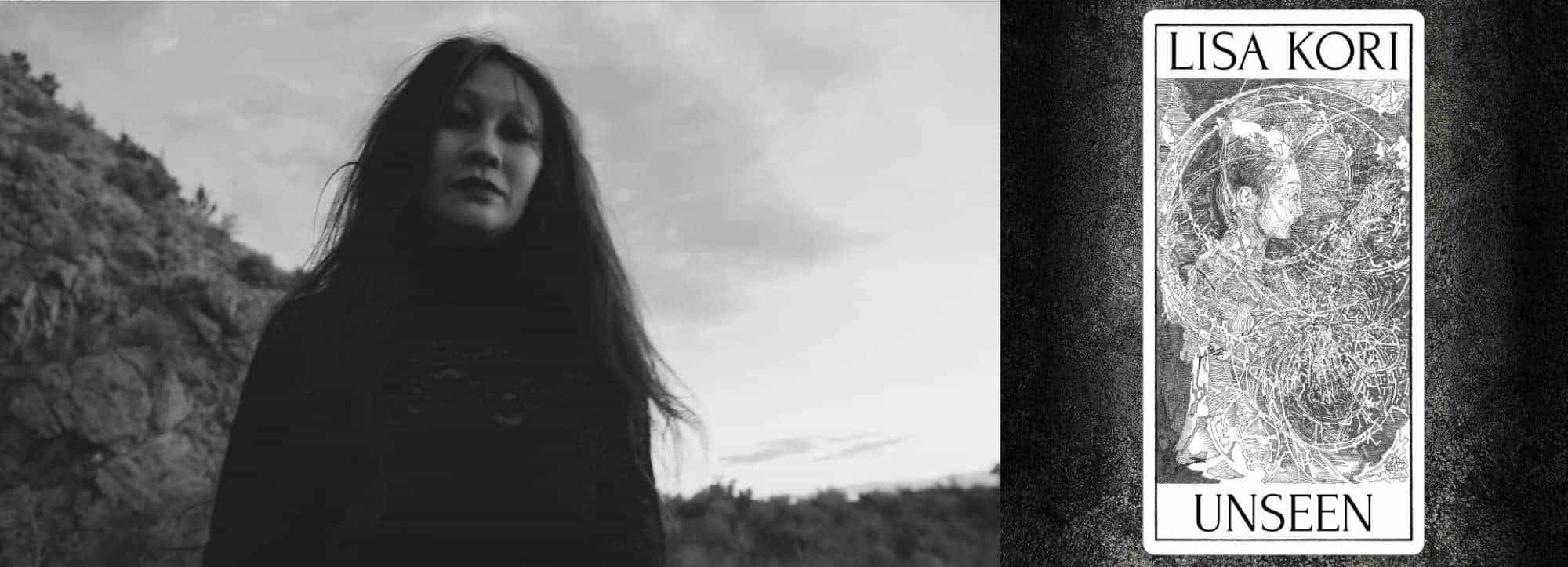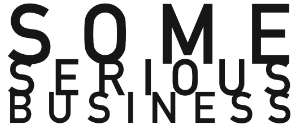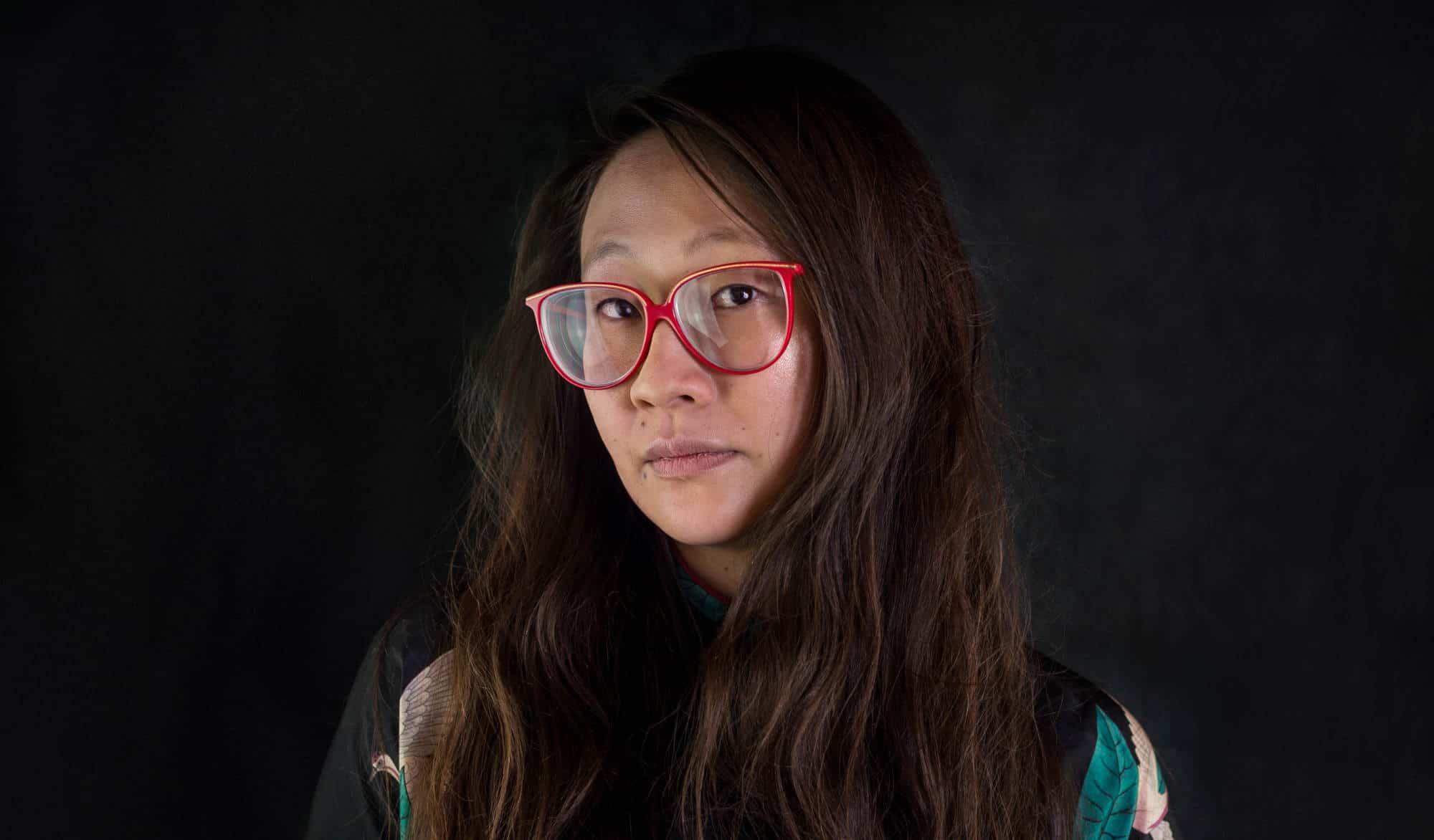And Answers a Few of SSB’s #FiftyQuestions
We first met Lisa last year when she opened for New York’s FeMaLe GEniUs in Santa Fe. We caught up with her recently and are pleased to present Unseen, a 3-track single including the prescient Quarantine, a song about being quarantined by the CDC in 2017. Grappling with feelings of being trapped and forced isolation, and struggling with the loneliness and ennui of a lost year due to illness, Kori says, “I worked on Unseen over the winter, not expecting to release the tracks during a global pandemic. Last year I worried that music inspired by illness and isolation was not very relatable. But now, sadly, the opposite is the case.”
The two other tracks, Unseen and Summon, are mystical fever dreams about crossing over into the spirit world, asking for guidance, and emerging from illness with a deepened sense of gratitude, trust, and appreciation for the strangeness and fragility of life.
Her solo music combines aspects of her varied background: Living on the road with nomadic noise musicians; spending part of her childhood in Hawaii and learning hula; and gigging as a country singer in New Mexico. The music incorporates finger-picked guitar, vocals inspired by Hawaiian chants, effects created with Max/MSP patches, and audio samples from analog electronic performances, when she used to bend circuits and build synths.
Give a listen. Release Date: Tuesday, April 21, 2020. #Industrial #FutureFolk #Neofolk #SingerSongwriter #AvantAmericana #Chant
Title and Tracklist:
1. Unseen
2. Quarantine
3. Summon
For a deeper look at Lisa’s creative process, Some Serious Business presents #FiftyQuestions to highlight folks who are creating, presenting, questioning, and critiquing. Each featured artist picks a handful of questions to answer.
What event or factor in your life has been the most pivotal in your decision to become an artist?
I started writing music in elementary school. It was my favorite thing to do. As I got older, especially in my twenties, I deeply internalized all the negative things people said to me. I had fellow musicians say, “You know, only 3% of us will manage to make a career out of it,” or an ex-boyfriend’s mother tell me, “I’ve never met anyone in my life who was less prepared to survive financially than you are.”
There’s a cultural narrative that musicians and artists are worthless in society until they are successful, and then they are suddenly revered for “breaking through against the odds.” That narrative, along with the fact that I graduated into a recession, really made me feel I had to buck up and be more practical.
Then in 2013, one of my best friends died suddenly and tragically at the age of 26. It was a huge wake-up call. I had to remind myself that our lives aren’t guaranteed. If I died tomorrow, the thing I would regret most was giving up music because I was worried about failing in a conventional sense. It’s taken time, but over the last few years, I’ve gradually reoriented my life to make space for music.
What has been the most significant challenge you’ve faced and overcome in continuing your art practice?
Over a period of eight months in 2017, I became increasingly ill and exhausted. Finally things deteriorated to the point where I ended up in the ER multiple times, and a lot of pretty scary diagnoses were suddenly thrown around, such as meningitis, rat lungworm, and a brain tumor, but when all the tests came back it turned out I had a bad case of giardia. It took me two years to recover from that, and just when things were getting better, I had another setback and was diagnosed with Epstein-Barr in 2019. Now it’s looking like it could take a year before I recover fully.
The three songs in the single are all about illness. Quarantine is about being quarantined twice by the CDC in 2017 for giardia and chikungunya fever. The lyrics toy with aspects of both physical and psychological confinement, and the outro of the song takes the listener on a journey toward release from that. The other two tracks, Summon and Unseen, explore the spiritual, transcendent side of illness. I’ve definitely gained a sense of strength (if only mental, not physical!) and an appreciation for the fragility of life. I try to convey that, even if it’s in a more abstracted way.
Who of all the artists who have ever lived would you most love to share your work with? And why?
Jeffrey Lee Pierce. There’s an outburst of anger and sorrow in his music that feels appropriate for our current time of crisis. Not just living in the midst of climate change and a global pandemic, but the inequality, austerity, and societal decay that are accompanying them. I’m also jealous of the spontaneity and confrontation in the music, and I’d really like to be around that energy, because it’s the opposite of what my current situation allows, which is making music quietly and alone. But to be honest, I think Jeffrey Lee Pierce would be a frustrating person to meet, and I’d probably end up pretty pissed off by him.
What role does your genetic or cultural background play in your practice?
Growing up, there were very few musicians who looked like me AND made music I was interested in. Kazu Makino from Blonde Redhead comes to mind, as well as Elizabeth Yi from a band called Korea Girl. Also when Karen O arrived on the scene with the Yeah Yeah Yeahs, that was exciting to me.
In addition to having an experimental project, I play in country and folk bands, and I’ve often asked myself, “Who am I, an Asian-American woman, to play this music?”—even if I grew up singing some of these songs. What we think of as American music is entirely hybridized. It combines West African music with Scots-Irish ballads and Spanish guitars. I’ve been wondering if there are Japanese- and Chinese-American folk music traditions, and why they never ended up in the mix of what we consider American music. The next project I’m working on addresses that question head on!
What is your relationship to your audience, real or imaginary?
Right now, I’m working on a relatively small scale, and I’ve been really energized by the relationships and creative communities I’ve become a part of. If one of my songs means something to you, that means a lot to me!
Curious about the #FiftyQuestions the artists had to choose from? See all of them here.

About Lisa Kori
Lisa Kori is a Hawaiian-born, New Mexico-based musician and artist. While working as an arts researcher documenting electronic music in Brazil, Indonesia, India, and Chile, she began to perform her own noise music. Her current work adds a lyrical touch, incorporating influences from American and Hawaiian folk music.
Kori has performed in Brazil, Switzerland, New York City, and Santa Fe—sharing the bill with a range of artists, from avant-garde projects such as Colin Self, FeMaLe GEniUs, Vanessa De Michelis, Joker Nies, and PSIRENS to Americana acts such as Pearl Charles, Walker Kass, and Ry Warner—and sings in the alt-country band Clementine Was Right.
She has exhibited artwork in venues such as Eyebeam in New York, Sónar+D in Barcelona, Wearable Futures in London, Museum of Future Government Services in Dubai, Blackout Festival in Basel, and Lichter Filmfest in Frankfurt. Kori has appeared in publications such as Vogue, The Creators Project and Noisey within VICE, Wired, FastCoExist, and Dezeen. She is the co-author of a chapter in the forthcoming edition of Handmade Electronic Music: The Art of Hardware Hacking by Nicolas Collins.
Contact: lisakori@gmail.com
Website: lisakori.net
Instagram: instagram.com/korilisa
Facebook: facebook.com/lisakorimusic
Portrait of Lisa Kori: Diego Romero / Rayo Del Alma Photography

